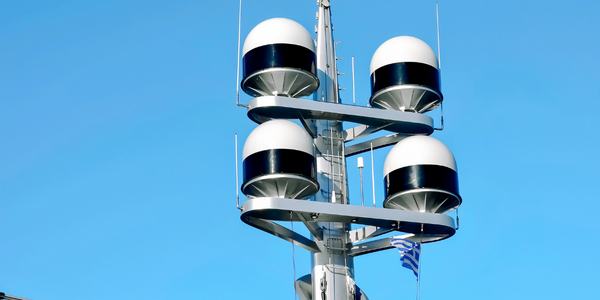Download PDF
Empowering the dream-makers
Technology Category
- Infrastructure as a Service (IaaS) - Cloud Computing
Applicable Functions
- Discrete Manufacturing
Use Cases
- Edge Computing & Edge Intelligence
- Real-Time Location System (RTLS)
Services
- Cloud Planning, Design & Implementation Services
- System Integration
The Challenge
Animal Logic, an independent Australian company, has been creating digital content, visual effects, and animation for the film and television industries for over 25 years. The company's business is cyclical in nature, with the demands of the productions they're working on dictating how many people they have working for them and how much infrastructure they need. As a result, speed of deployment for their data center environments is critical to their success. Around 90% of the data center houses high-density compute, which is used for the process of rendering images, while the other 10% is high-capacity storage used for production, which houses the images that are generated by that render process. The company needed a data center solution that could meet these unique needs for capacity and delivery.
About The Customer
Animal Logic is an independent Australian company with over 25 years of experience in creating digital content, award-winning visual effects, and animation for the film and television industries. The studio has delivered work on several high-profile films, including Guardians of the Galaxy Vol. 2, Alien: Covenant, The LEGO® Batman Movie, The Great Wall, and The Master: A LEGO® Ninjago Short. Animal Logic is currently in production on The LEGO® Ninjago Movie, Peter Rabbit, and The LEGO® Movie Sequel. The company also has a development and production arm, Animal Logic Entertainment (ALE), which is tasked with establishing a strong slate of innovative, commercially minded, story-driven projects. Animal Logic has locations in Sydney, Los Angeles, and Vancouver.
The Solution
Schneider Electric provided a custom prefabricated data center solution for Animal Logic. This solution was chosen because it allows for customization, has a reputation for flexible engineering, and promises fast deployment. The new infrastructure delivered a major boost in data processing, which in turn enabled greater performance and operational agility. For example, the newly implemented 30 kW per rack power density empowers Animal Logic’s facility to process 1.25 petaflops per second on average. Furthermore, a data center infrastructure management (DCIM) software was deployed to provide complete visibility across the facility, improving planning and operational performance. StruxureOn™, a cloud-based monitoring service offers Animal Logic maximum protection of critical equipment.
Operational Impact
Quantitative Benefit
Related Case Studies.

Case Study
Leading Tools Manufacturer Transforms Operations with IoT
Stanley Black & Decker required transparency of real-time overall equipment effectiveness and line productivity to reduce production line change over time.The goal was to to improve production to schedule, reduce actual labor costs and understanding the effects of shift changes and resource shifts from line to line.

Case Study
Jaguar Land Rover Speeds Order-to-Cash Cycle
At Jaguar Land Rover, vehicles physically move around the facility for testing, configuration setting, rework and rectification, leading to a longer search time to get each vehicle to its next process facility. The main goal is to minimize the vehicles' dwell time between end of line and the delivery chain which was previously a manually intensive process. Jaguar Land Rover's goal was to build on the success of an earlier RFID project and improve the efficiency of delivering vehicles to meet dealer orders.

Case Study
VIPER Aid to Acoustic Positioning
Applied Acoustics Easytrak Portable acoustic navigation system can undertake a wide range of tracking and positioning tasks for seabed mapping, towfish tracking and controlling robotic vehicles. It is also used to locate subsea divers, so is critical to the safety of personnel. To deal with difficult operating environment, a robust single board computer is required.

Case Study
A repeatable model for industrial data intelligence
Exara’s oil and gas client required a reliable way to gather, store, and process data from sophisticated machine assets in remote oil field sites. These harsh, real world environments present significant challenges for high performance computing devices.

Case Study
A Smarter Brain for Your Train…
Have you ever felt overloaded by too much sensory input? The results can be problematic, even risky if you’re driving at the time. The same holds true for trains, ships, oil rigs, and many other industrial assets. The data processing challenges on these complex machines are growing rapidly as the number of sensors increases; yet so are the opportunities to transform operations by using all the available data effectively. A modern locomotive, for example, has as many as 200 sensors generating more than a billion data points per second.

Case Study
IIC - Edge Intelligence Testbed
A test environment is needed for algorithms and architectures that meets a common set of requirements for many testbeds (see "Testbed in Depth")GOAL:A test facility that can be configured into complex edge compute environments, in order to further the state-of-the-art in edge analytics and algorithms





